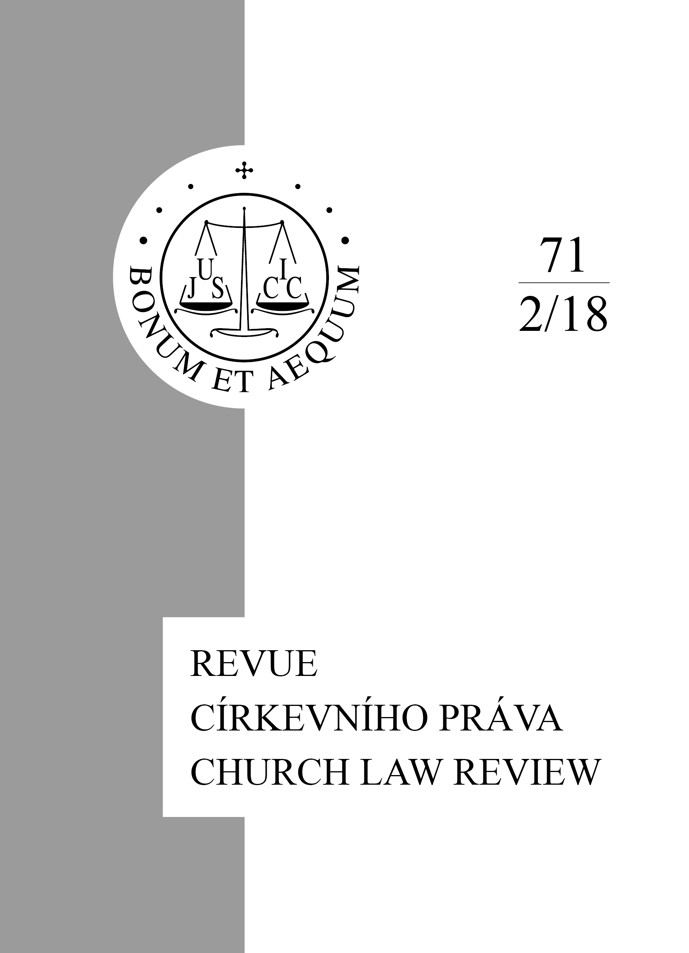Pavlova nauka o manželství v prvním listu Korinťanům
The Doctrine of Paul Concerning Marriage in the First Epistle to the Corinthians
Author(s): Stanislav PřibylSubject(s): History of Church(es), History of Law, Biblical studies, Canon Law / Church Law, History of Religion
Published by: Společnost pro církevní právo
Keywords: apostle; marriage; man; woman; single; married; widow; abstinence
Summary/Abstract: In the First Epistle to the Corinthians, the Apostle Paul responds to the unsatisfactory religious and moral status of the local church community. He also responds to the Corinthians’ questions about marriage and the unmarried status. The apostle prefers the ideal of a life without a wife, as this visible world is not definitive and cannot deliver adequate life fulfilment. Paul gives himself as an example of a person who, without family responsibilities, can devote himself to service of God. He, however, encourages believers to get married and lead intimate lives in marriage. In accordance with Jesus’ teachings, Paul considers marriage to be indissoluble, but permits individuals to leave an unbelieving partner if that partner prevents the believing partner from the life of faith. This is the basis of the future canon law regulation known as the Pauline privilege. Paul also allows the second marriage of widowed persons. Although Paul’s treatise on marriage was originally an occasional text, the history of this excerpt significantly influenced the future religious concept of matrimonial canon law.
Journal: Revue církevního práva
- Issue Year: XXIV/2018
- Issue No: 71
- Page Range: 53-67
- Page Count: 15
- Language: Czech

